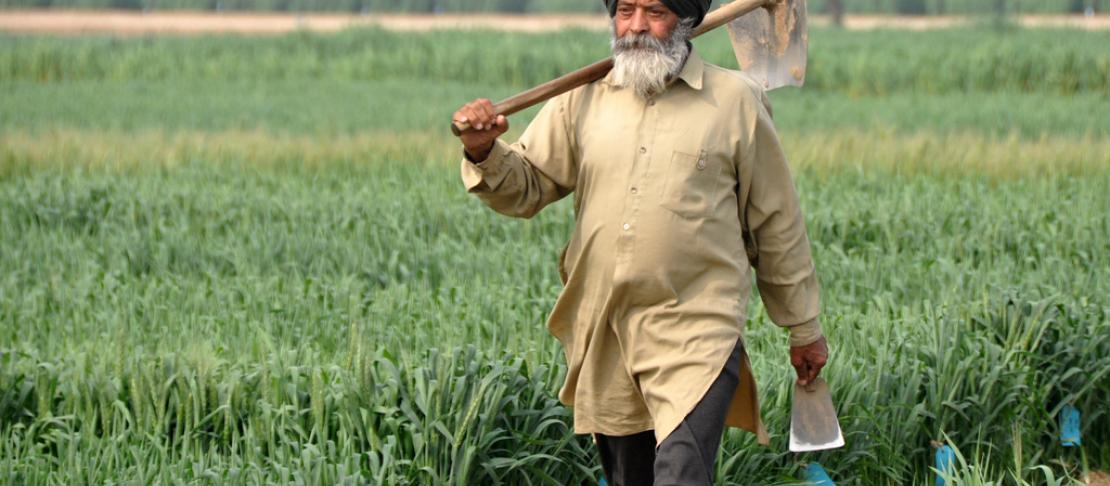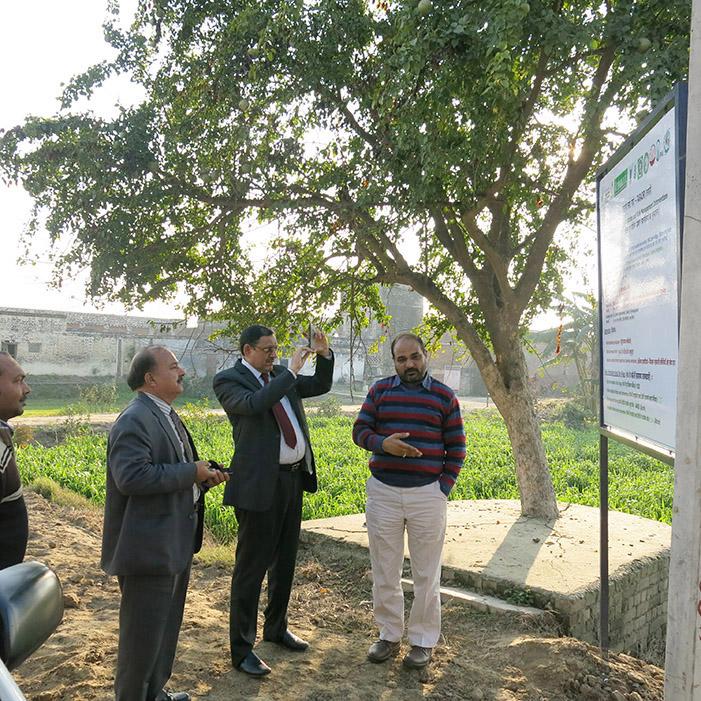Climate-smart villages: local adaption to promote climate-smart agriculture

A host of high-level officials visited CCAFS Climate-Smart Villages in Haryana state of India. Accompanied by researchers from CIMMYT, Alok K. Sikka, deputy director general of the Natural Resource Management Division of the Indian Council of Agriculture Research’s (ICAR) and leader of ICAR’s National Initiative on Climate Resilient Agriculture (NICRA), interacted with farmers.
In Haryana state of India, Climate-smart villages are implemented in close collaboration with NICRA and through a range of innovative partnerships. The International Maize and Wheat Improvement Centre (CIMMYT) and The CGIAR Research Program on Climate Change, Food Security and Agriculture (CCAFS) are leading projects in collaboration with national agriculture research and extension systems, CGIAR centers, farmer cooperatives, the Haryana Department of Agriculture and policy planners. Together, we have piloted several Climate-Smart Villages in Haryana as research and learning sites. Sustainable intensification and conservation agriculture-based management systems are the key areas in which CIMMYT and our partners work together.
27 Climate-Smart Villages
Dr Sikka was accompanied by D.K. Sharma, director of the Central Soil Salinity Research Institute, and P.C. Sharma, one of the Institute’s principal scientists, along with other scientists from ICAR and CIMMYT. Participants agreed that South Asian agriculture needs new technologies, community-based adaptation of relevant practices and the strengthening of local decision-making. The 27 Climate-Smart Villages being piloted in Haryana, India, will disseminate key climate-smart agricultural interventions, focusing on water, energy, carbon nutrient, weather and knowledge implemented through innovative partnerships and farmer cooperatives, said M.L. Jat, CIMMYT senior cropping system agronomist.

A.K. Sikka (centre), DDG ICAR, at a climate-smart village in taraori village in haryana, India.
Photo credit: Vikas
Visitors interacted with farmers and members of farmer cooperatives who are actively disseminating these practices to local communities. The model of innovation platforms for strategic participatory research and learning at Climate-Smart Villages was recognised as an effective method to link science with development. Dr Sikka said the depleting water table, deteriorating soil health, escalating input costs and weather uncertainties constitute critical concerns and that current production systems are not sustainable.
Read more: This blogpost was first published on CIMMYT. To read the full post, please click here.
Watch a video on Climate-Smart Villages
Read: Project tests new ways to deliver climate information to farmers
Read: What are Climate-Smart Villages
M.L Jat is Senior Cropping Systems Agronomist at the International Maize and Wheat Improvement Centre (CIMMYT). He is also a lead researcher at CCAFSClimate-Smart Villages project



